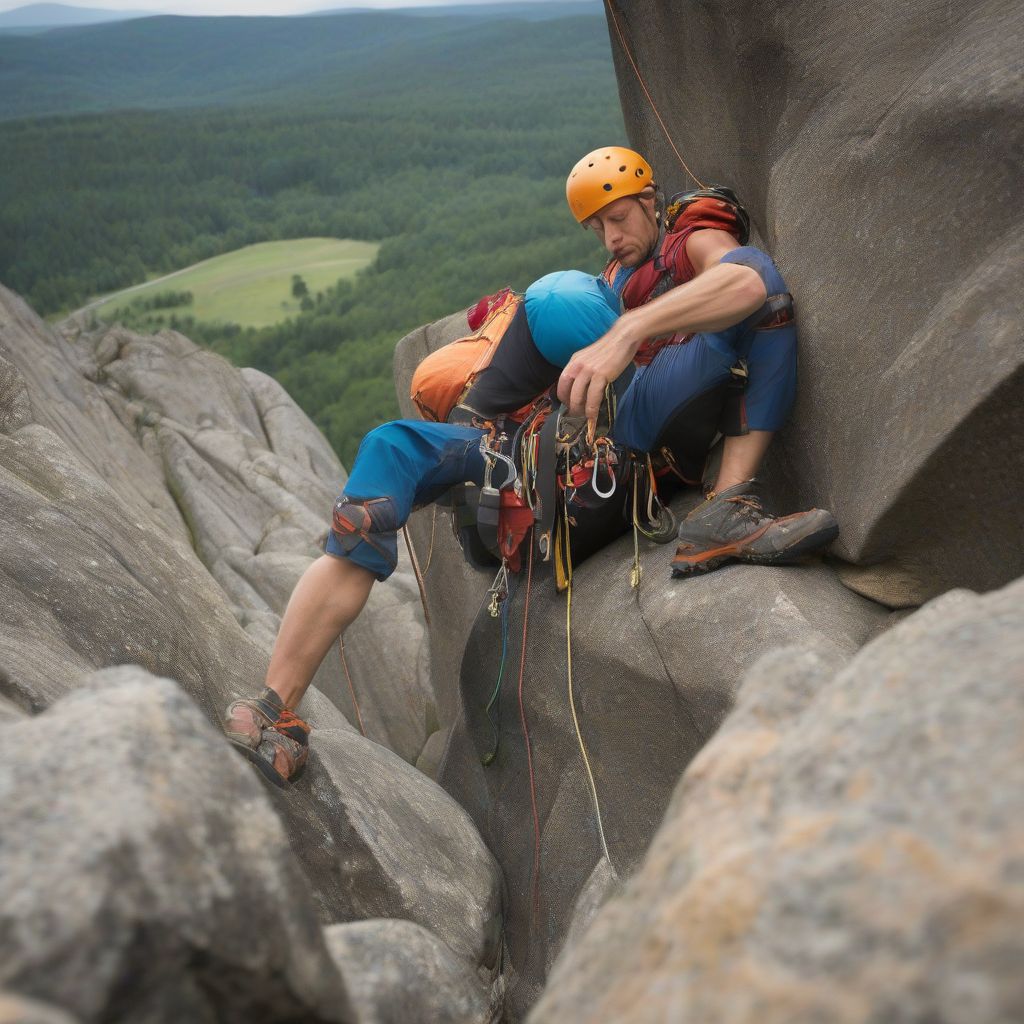“The mountains are calling and I must go,” wrote John Muir, capturing the irresistible allure of towering peaks and challenging climbs. But before you answer that call, embarking on a climbing expedition, especially a demanding one, requires meticulous preparation. This isn’t just about physical strength; it’s about building a resilient body and mind ready to face the unique demands of the mountains.
Building a Solid Foundation: Strength, Endurance, and Flexibility
Think of your body as a finely-tuned machine, each part working in harmony to propel you upwards.
Strength Training: Your Rock-Solid Base
Climbing requires pulling, pushing, and holding your own weight. Incorporate these exercises 2-3 times a week:
- Pull-ups and Chin-ups: Master your own bodyweight.
- Push-ups: Build upper body pushing strength.
- Dips: Target triceps and chest muscles.
- Squats and Lunges: Strengthen legs for stability and power.
- Core Work: Planks, hanging leg raises, and Russian twists for core stability – crucial for balance and efficient movement on the wall.
Endurance Training: Climbing for the Long Haul
Multi-pitch climbs and long expedition days demand stamina.
- Hiking with a Weighted Pack: Simulate the weight of your gear. Gradually increase the distance and elevation.
- Stair Running: Build lower body endurance.
- Cycling or Running: Excellent for cardiovascular fitness.
Flexibility and Mobility: Move with Grace and Prevent Injuries
Climbing requires a surprising range of motion.
- Yoga or Pilates: Improve flexibility, balance, and body awareness.
- Regular Stretching: Focus on shoulders, hips, hamstrings, and forearms.
 Climber Stretching on Mountain
Climber Stretching on Mountain
Climbing-Specific Training: Sharpening Your Skills
Transition your strength and fitness into climbing prowess.
Rock Climbing at the Gym or Crag:
- Climb Regularly: Aim for 2-3 sessions per week.
- Vary Your Climbs: Practice different climbing styles and techniques, including crack climbing, slab climbing, and overhangs.
- Work on Your Weaknesses: Don’t shy away from routes that challenge you.
Practice Makes Perfect: Refining Your Technique
- Footwork: Precision foot placement is crucial. Practice on smaller holds and focus on smooth, controlled movements.
- Body Positioning: Learn to use your body efficiently to conserve energy.
- Resting on the Wall: Mastering efficient resting techniques will be crucial on challenging climbs.
 Climber Resting on Wall
Climber Resting on Wall
Fuelling the Climb: Nutrition for Peak Performance
Your body is an engine, and it needs the right fuel to perform.
- Hydration is Key: Drink plenty of water throughout the day, especially while training and climbing.
- Carbohydrates for Energy: Fuel your workouts and recovery with complex carbs like whole grains, fruits, and vegetables.
- Protein for Muscle Repair: Include lean protein sources like chicken, fish, beans, and tofu in your diet.
- Healthy Fats for Sustained Energy: Incorporate healthy fats from avocados, nuts, and olive oil.
Mental Fortitude: Training Your Mind for the Mountains
Climbing is as much a mental game as a physical one.
- Visualization: Mentally rehearse your climb, visualizing each move and potential challenge.
- Goal Setting: Break down your training into smaller, achievable goals to track progress and stay motivated.
- Stress Management: Incorporate relaxation techniques like meditation or deep breathing into your routine to manage pre-climb jitters.
Gearing Up: Choosing the Right Equipment
Having the right equipment is paramount for safety and success. Consult with experienced climbers or professionals at your local gear shop for personalized recommendations.
[amazon bestseller=”climbing gear”]
Listen to Your Body: Rest and Recovery
Rest is not a luxury; it’s essential for muscle repair and growth.
- Prioritize Sleep: Aim for 7-9 hours of quality sleep each night.
- Schedule Rest Days: Give your body a break from intense training 1-2 days per week.
- Listen to Your Body: Don’t push through pain. Rest or seek professional help if needed.
Conclusion: The Summit Awaits
Preparing for a challenging climbing expedition is an incredibly rewarding journey. By focusing on strength, endurance, flexibility, climbing-specific training, proper nutrition, mental fortitude, and adequate rest, you’ll be well on your way to tackling those challenging peaks. Remember, climbing is a journey, not just a destination. Embrace the challenges, celebrate the victories, and always remember to enjoy the view from the top!
